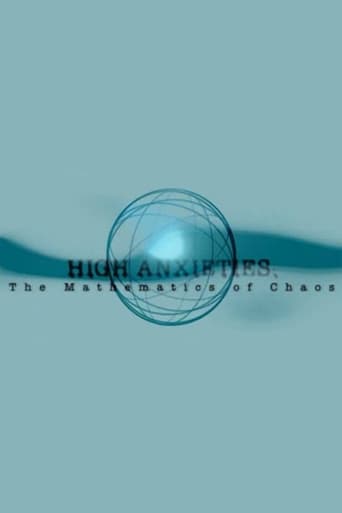Robert Joyner
The plot isn't so bad, but the pace of storytelling is too slow which makes people bored. Certain moments are so obvious and unnecessary for the main plot. I would've fast-forwarded those moments if it was an online streaming. The ending looks like implying a sequel, not sure if this movie will get one
rgcustomer
This is not a documentary about chaos.Rather, it's a brief history of the 20th century, with some vague gesturings toward some math. It's presented as though discovering the math of chaos somehow drove billions of individual people to feel happy or sad about the world. I doubt that citizens of the 20th century knew anything about the math of chaos, or even cared if they did. As for us, we're not really told ANYTHING about the math of chaos, beyond the fact that it might be chaotic.In terms of the history, we're told how Newtonian predictability gave way to chaos, but then we tamed it a bit, and then George W Bush happened. Or something.At the film's conclusion, we're told that we shouldn't worry so much about global warming because there's nothing we can do about it anyway. This is AFTER they spent an hour telling us that we simply cannot know things like that, and that actions as small as the flapping of butterfly wings can have large outcomes. Using this sleight of hand, they encourage us not to try, because apparently the risk of short-term job loss is more important than the risk of throwing most or all of humanity back to the stone age, or into extinction. It also completely ignores the fact that most steps being taken to address global warming would need to happen anyway, because there's not an infinite supply of material to dig out of the ground.I rate this as high as 6 because it does at least tell you the names of some people who discovered some things about the math of chaos. But if you have access to Wikipedia, don't waste your time on this.

